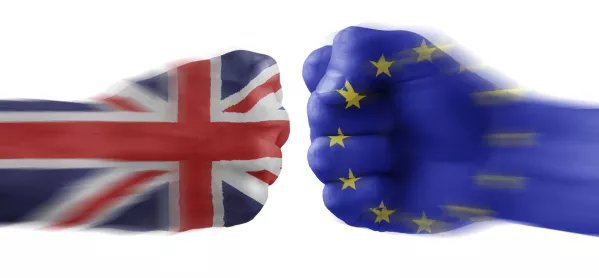- Home
- ‘History is a victim of Gove’s back-of-an-envelope policies’
‘History is a victim of Gove’s back-of-an-envelope policies’

History at GCSE is in danger of slipping out of the reach of pupils from disadvantaged backgrounds, according to a new report. As schools seek to ensure that new, tougher GCSEs don’t cause their results to slip, the report (written by researchers at Reading and Oxford universities) concludes: “There is a danger that some schools’ decision-making processes prioritise meeting accountability measures, rather than the needs of some students.”
Ouch. Is this another of those allegations of schools “gaming” the system to improve their league-table positions? Stephen Rollett, speaking for the Association of School and College Leaders, commented: “Government reforms to GCSEs have placed schools and pupils under a great deal of additional pressure, but schools are working incredibly hard to ensure that these changes do not disadvantage children in any way.” I share his view: nonetheless, heavy-handed government intervention invariably has unintended consequences, and creates perverse incentives.
History is perhaps too easily seen as a wordy subject requiring research, reading and detailed analysis. Pupils bringing a measure of cultural capital from home will be undaunted by that challenge: those without may well be. Students and schools alike will be looking to ensure the greatest number of safe/good passes, so… it’s easy to see how other options might appear to provide a surer route.
As the report notes, history is one of those subjects much favoured by Russell Group universities. Less advantaged pupils deterred from taking history GCSE will be discouraged, even feel disbarred, from applying to those top institutions. Thus social mobility, or the chance of increasing it, is halted.
The EBacc is forcing history out
Pointing fingers of blame is in fashion: so who can we blame for this situation? First, the excessive accountability regime: stakes are too high for schools, and the pressure on them to avoid failure transmits to pupils making subject choices. In other words, it’s not necessarily an individual school dissuading them from doing history: education’s failure-averse culture does the job, too.
Second, the EBacc was the back-of-an-envelope invention by Michael Gove, when he was education secretary - and (I’m told) in need of a new wheeze to present to Andrew Marr one Sunday morning. He produced a highly subjective and arbitrary list of subjects that he thought 16-year-olds should follow, pronouncing that only those would henceforth count in government tables. We’re already seeing take-up of creative subjects (art, music, drama) hit by their omission from Gove’s little list. Now this recent research (2010-14) shows that even history learning has become patchy, weighted towards the upper end of the ability range.
Does it matter? After all, no student can do every subject. But, right now, it’s particularly unfortunate that history should be the latest subject to fall victim to government pressure, EBacc and league tables - and the wrong choices that stem from them.
It was probably the Spaniard George Santayana who coined the aphorism “those who cannot remember their past are condemned to repeat it”. In the vicious, confrontational context of the current Brexit storm, too many loud voices wilfully ignore the lessons of history.
When one in 20 of the population is reported as not believing that the Holocaust happened. When virulent Brexiteers shamelessly link their desire to leave the EU to the fight against Nazi aggression nearly 80 years ago. When lies and exaggeration are routine components of politicians’ and commentators’ toolkits. When those calling out individuals or organisations for anti-Semitism or other forms of intolerance are vilified, threatened or even (in the case of MP Jo Cox) murdered. When powerful lobbies and foreign nations devote colossal digital resources to the creation and promulgation of fake news. At such a time, if those currently in school are to be equipped to identify and reject political machination and deliberate falsehood, they arguably need to learn more history.
Indeed, if we blithely permit them to learn less, we do so at our, and their, future peril.
Dr Bernard Trafford is a writer, educationalist, musician and former independent school headteacher. He tweets at @bernardtrafford
Keep reading for just £1 per month
You've reached your limit of free articles this month. Subscribe for £1 per month for three months and get:
- Unlimited access to all Tes magazine content
- Exclusive subscriber-only stories
- Award-winning email newsletters



